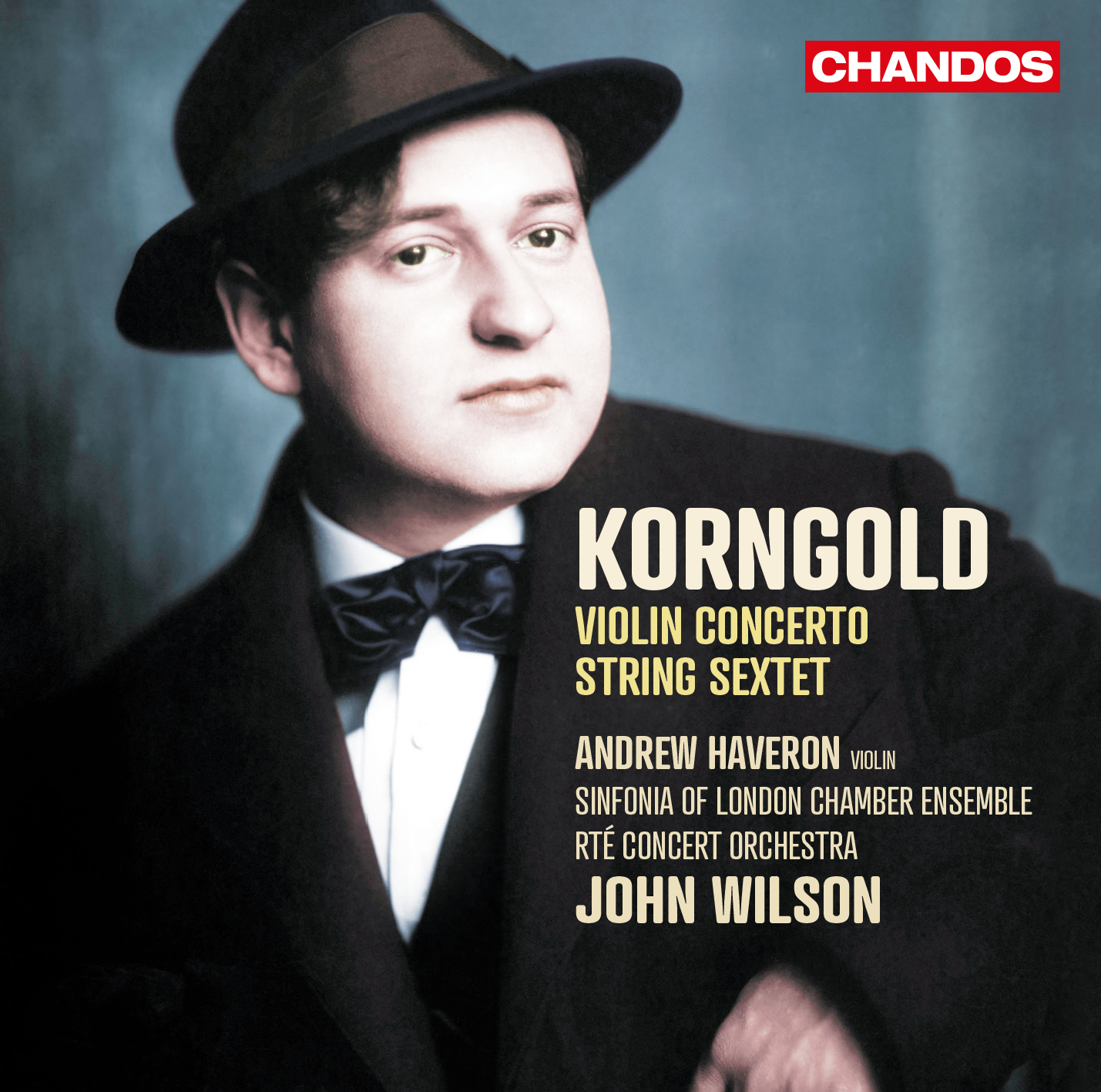Before we get to what I think will be a nice and fair assessment of John Wilson’s 2020 recording, a word to some people.
I have always been aware of the tacit agreement that exists between my screen persona Simona Wing and her fans, but let me now take this apt opportunity to state my position clearly: You all have my blessing to do whatever you want with me in your fantasies.
Because whatever you want to do with me in your fantasies is nothing compared to what I want to do with John Wilson in mine. So, go for it.
Now on to Korngold.
I didn’t realize this was still a thing in the music world, but apparently opinions continue to be strongly divided as to whether Erich Wolfgang Korngold—a true heir, by the way, to The Great Mittel European Romantic Tradition—deserves inclusion in the canon some snooty farts call the Classic Repertoire. You know, the one that has Bach and Beethoven and all those other cats. It’s no secret that when you mention the name Korngold, the average music lover’s first thought is of upmarket movie soundtracks (Anthony Adverse—The Adventures of Robin Hood—The Sea Hawk—Captain Blood) and likely never gets around to the fact that Korngold wrote, among other things, the most luscious symbolist opera of the 20th century, Die Tote Stadt, in 1920, and a hell of a gorgeous violin concerto 25 years later:
(Click here to subscribe to the RTE Concert Orchestra channel and support them.)
So it seems like every generation there has to be one nut who comes along and says, Let’s run Korngold past the hoi-polloi again and see if he’ll fly—and if you think I’m talking about you, John Wilson, you’ve got a swelled head. Because the nut I’m talking about is the nut in the CIA. The anonymous nut who got The Company to fund an enterprise back in the early 70s called “The Golden Age of Hollywood Music” and hence to elevate Korngold to the status of Hollywood Royalty—but through his film scores and his film scores only.
But that story later.
We’re here right now not just to size up a new Korngold recording, but to honor the decades-long musical relationship of Andrew Haveron, violinist, former Leader of The John Wilson Orchestra, current Leader of the Sydney Symphony Orchestra, and conductor John Wilson, whose career in orchestra building started at the age of 22 and hasn’t stopped since.
Korngold’s Violin Concerto in D, their latest Chandos release, was going to get my attention with or without the Winsome Lad of Low Fell anyway, as I’m a sucker for this particular style and era of music. But I was glad to learn about their actual friendship as well; for me it explains why the perfect communication that’s so evident here between Haveron and my John (and through him, to the estimable RTE Orchestra) has some of the magic of Barenboim+du Pré, back in the brief days when those two were cooking hot with Elgar.
This is soloist Haveron’s star turn: a warm, fresh, intimate—revelatory even—rendition of a piece that, let’s face it, is kind of like the “Nessun Dorma” of violin concertos. But this is John’s success too. So much of my bonny’s gift for conducting Korngold, as we know, has to do with his insistence on a technique his PR people call “shimmer” but is actually wrist vibrato on strings, a technique in fingering I learned about and taught myself when I was 14 because I liked the sound it made, although when the orchestra teacher put it down for sounding cheap and sloppy I quit it.
But I know the sound of shimmer and you do too. The John Wilson Orchestra practically patented it. John himself still calls for it whenever he conducts Tchaikovsky. It’s in all the high-toned movies of the 1930s (examples above). It’s also in Rouben Mamoulian’s classic film musical Love Me Tonight (complete film here) courtesy of Paramount’s musical director Nat Finston, who understood what he was talking about when, in a certain musical scene, he said he wanted “crying violins”. I could tell what he was talking about when he told me this story 46 years later.
 NOTES for Korngold: Concerto & Sextet (Chandos, 2020) can be found here.
NOTES for Korngold: Concerto & Sextet (Chandos, 2020) can be found here.
- “The Story So Far, with Conductor John Wilson”
- “The Story So Far; Or, Conductor John Wilson—His Limits”
- “Cantara Christopher Gives Her Beloved Conductor John Wilson Crib Notes on Todd Field’s Screen Masterpiece, Tár: Love, Teshuvah, and Filipinos Will Save Western Music”
FULL DRESS // A gifted mesmerist—a sinister composer—a naive young conductor from the north…inspired by an episode from the life of Rachmaninoff // DOWNLOAD FREE BOOK POSTER
11 thoughts on “Sexual Fantasies in a Time of Pandemic; Mamoulian’s Crying Violins; and Korngold’s Violin Concerto in D Played by the RTE Concert Orchestra, Andrew Haveron Soloist, with John Wilson Conducting”